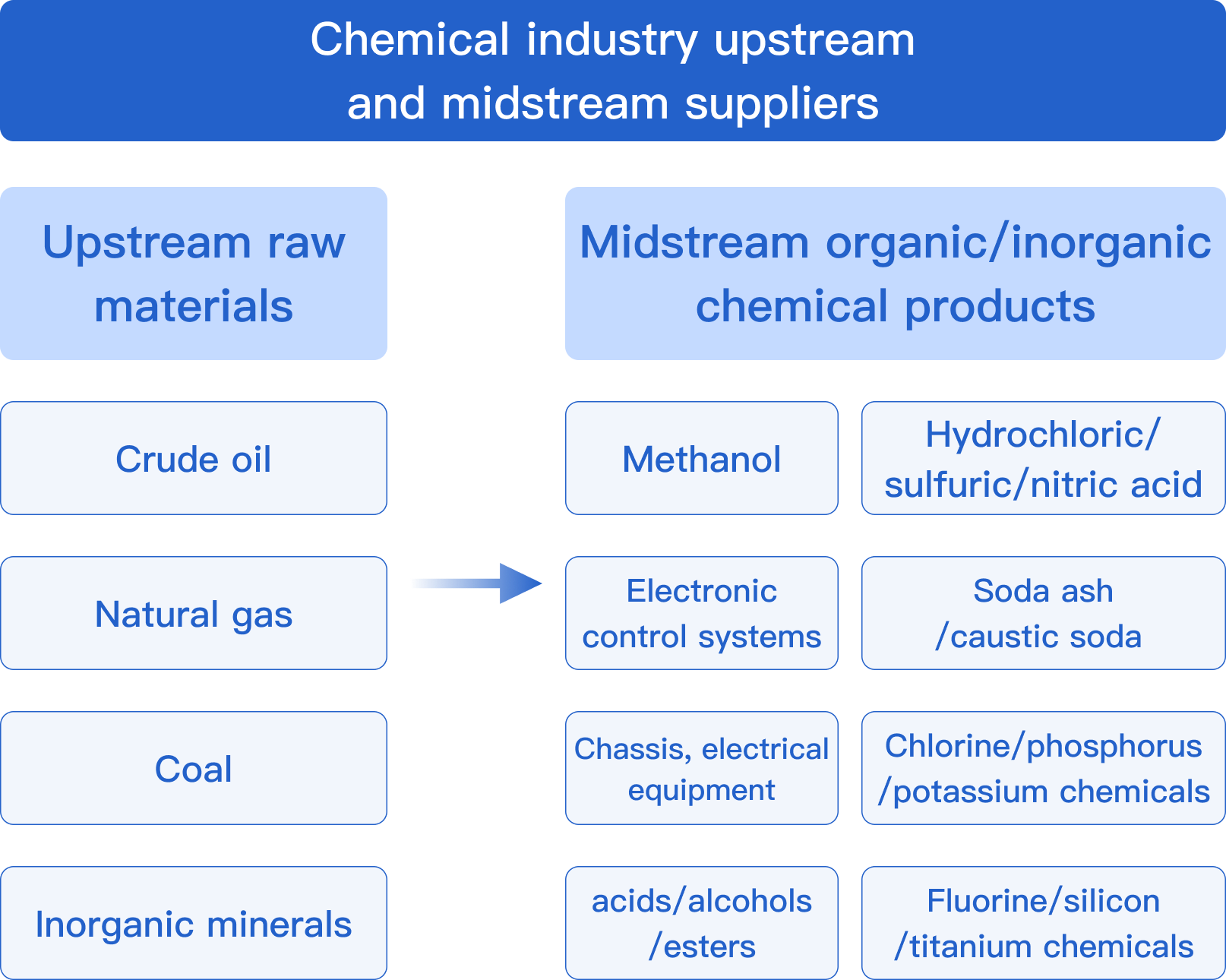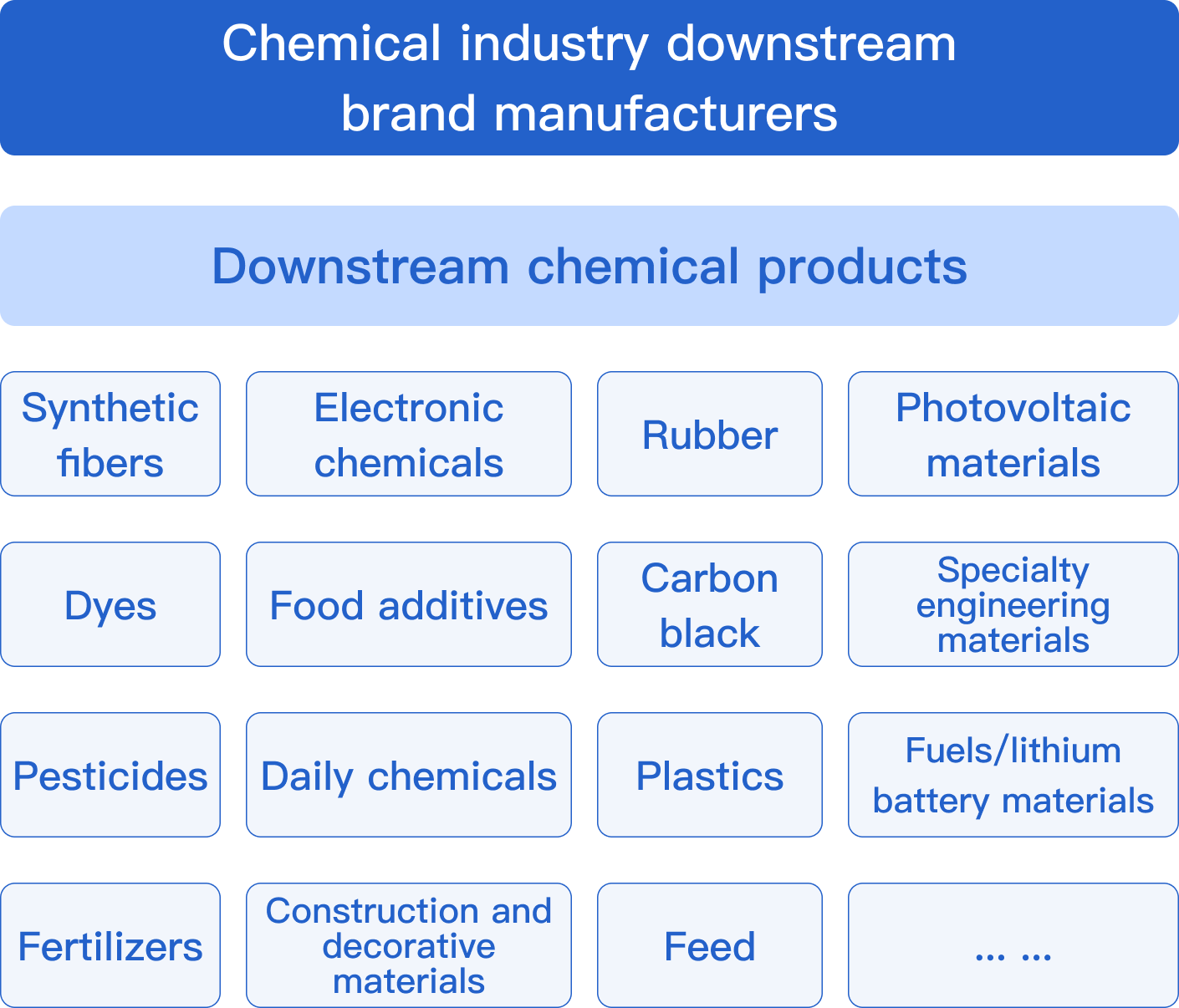
Dual Carbon Solutions for Chemical Manufacturing Industry
Industry background
The chemical industry is one of the sectors with high carbon emissions in China and is also a key focus for energy conservation and emissions reduction. Within the chemical industry, there is a globally significant initiative that focuses on the procurement of the chemical supply chain. In 2011, six companies - Bayer, BASF, Clariant, Evonik, Henkel, and Solvay - jointly launched the Together for Sustainability (TfS) initiative. This initiative aims to standardize sustainable supply chain practices in the chemical industry and is committed to improving the sustainability performance of chemical companies and suppliers. TfS certification is highly important for both chemical companies and their supporting enterprises.

Analysis of pain points in the entire industry chain


Core pain points of upstream and midstream suppliers:
- Lack of knowledge on how to undergo TfS assessment and audit, and failure to conduct carbon footprint assessment and certification.
- Products are mainly exported to the EU, but lacking knowledge on CBAM declaration.
- Desire to conduct carbon footprint verification, but lacking the capability to understand their carbon footprint.
- Unable to independently complete the submission of enterprise greenhouse gas emission reports and verification required by the government.
- Desire to reduce carbon emissions, but lacking implementation measures for carbon reduction.
Downstream manufacturers may face the following challenges:
- Incomplete carbon disclosure, lacking key data (especially in Scope 3)
- Uncertainty on how to set scientifically and reasonably carbon reduction targets and measures
- Aspiring to build a green supply chain, but lacking the capability to manage upstream carbon emissions compliance effectively
- Desire to monitor upstream enterprise carbon emissions in real-time but lacking necessary digital technology
We offer the following assistance
- Learn more
Support with the TfS sustainable procurement and audit.
- Learn more
Completing CBAM declarations
- Learn more
Obtaining authoritative carbon footprint and carbon neutrality certificates
- Learn more
Achieving carbon neutrality goals (e.g., SBTi)
- Learn more
Promoting low-carbon products and brands
Our Services
Carbon Newture provide a variety of solutions addressing market compliance requirements and pain points in emission reduction along the industrial chain.

Carbon Footprint of Product
By conducting a product carbon footprint assessment, enterprises can accurately quantify the greenhouse gas emissions throughout the entire lifecycle of a product, identify the primary sources of carbon emissions, and optimize decarbonization processes and supplier management based on this information.

Carbon Neutrality of Product
Achieving product carbon neutrality is a crucial step in meeting carbon neutrality goals and serves as an excellent means to communicate the company's efforts in carbon reduction to downstream enterprises and consumers.

Corporate GHG Inventory
GHG inventory is the foundation and basis for enterprises to establish scientifically sound carbon goals and implement carbon reduction measures. Carbon Newture assists enterprises in quantifying and tracking greenhouse gas emissions, formulating emission reduction strategies, continuously monitoring the achievements of emission reduction, and ultimately achieving carbon goals.

Supply Chain Emissions Reduction
Enterprises demonstrating excellence in addressing climate change have incorporated supply chain emissions reduction into their carbon goals. Carbon Newture assists enterprises in quantifying and managing supply chain carbon emissions, enabling better strategic decision-making and achieving supply chain carbon reduction objectives.

Carbon Border Adjustment Mechanism (CBAM) service
Carbon Newture provides professional, compliant, and efficient CBAM reporting services, helping you effortlessly navigate trade barriers and mitigate potential carbon risks.

Together for Sustainability Initiative (TfS )
TfS is one of the most influential initiatives in the chemical industry, proposed by six chemical giants including BASF. It requires their suppliers to undergo sustainable procurement audits, with the carbon footprint of supplied products being a mandatory component.

Compliance of carbon data cross-border
Through the “Carbon Data Cross-border Green Channel”, Carbon Newture empowers enterprises to achieve compliant, secure, and efficient cross-border carbon data transmission.
Empower brands to enhance their green value
helping enterprises successfully create ”Carbon Neutrality“ IP and a new brand image














